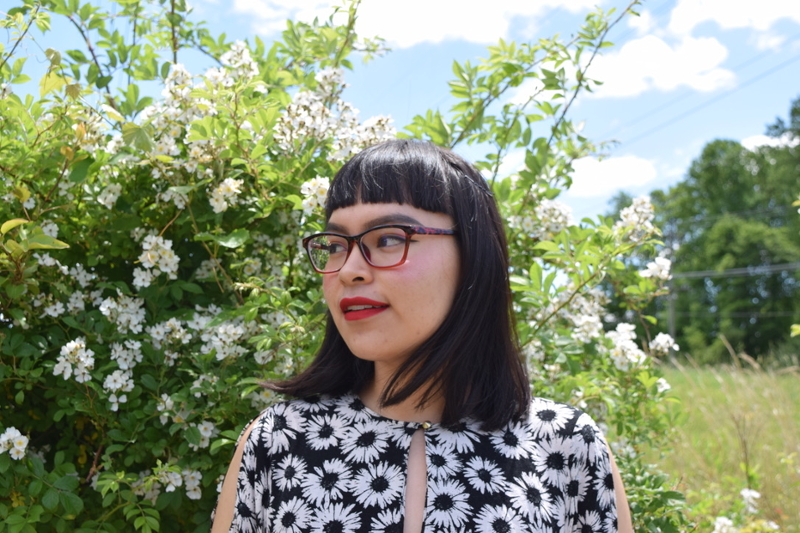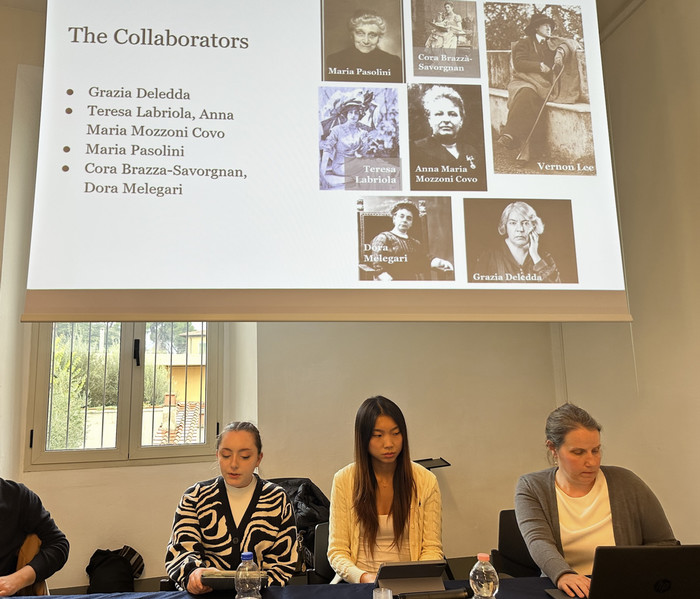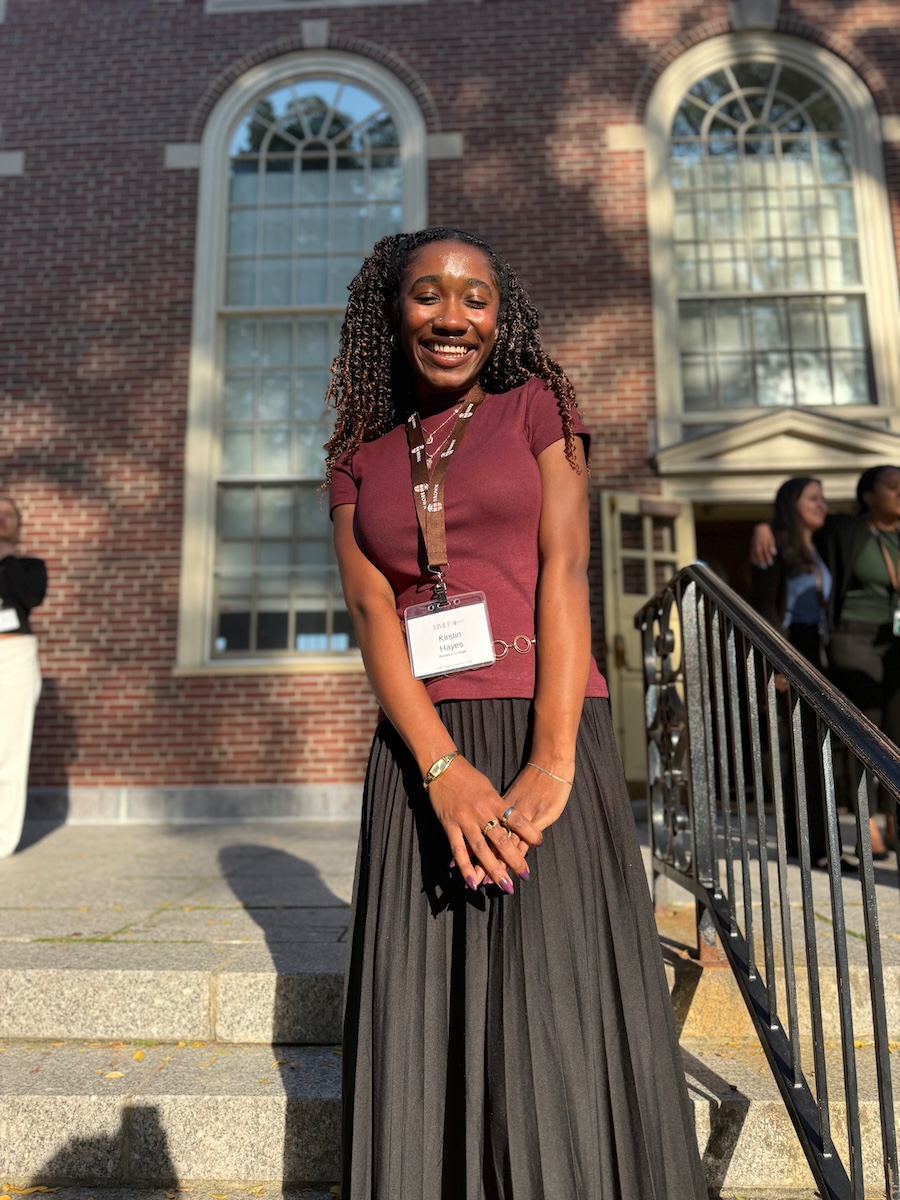Indigenous Russian Identities through a Native American Lens
By Tom PorterShandiin Largo '23 has been spending the summer steeped in research that both reconnects her with her own identity as a Navajo/Diné woman and explores parallels between Indigenous cultures in the US and Russia.

“I am Salt clan, born for Towering House clan. My maternal grandfather is Bitterwater clan, and my paternal grandfather is Sagebrush Hill clan. In this way, I am a Diné woman,” says Largo, who is from the Eastern Agency of the Navajo Nation, in Casamero Lake, New Mexico.
Connecting with her Native American identity, she says, reinforces the “topsy turvy backwards way of looking at the world” that confronts Indigenous peoples in North America. Her culture and her language, says Largo, are more “American” than that of most people who call themselves American, yet she remains the outsider, the “other.” This way of looking at the world, she says, is the product of colonialism and genocide.
Largo’s desire to reinforce her identity at Bowdoin coincided with an academic interest in Russian literature and culture, particularly in the experiences of Indigenous people in the Russian-speaking world. In the fall 2019 semester she enrolled in RUS 2315 (Love, Sex, and Desire in Russian Culture). “This course introduced me to authors, literature, and a culture that was completely new and fascinating to me,” she says.

This led her to take RUS 2240 (1000 Years of Russian Culture) in Spring 2020, under Associate Professor of Russian Alyssa Gillespie. “Over the course of many conversations with Professor Gillespie, I began to think of parallels between my own experiences as a Native American in the United States and the experiences and voices of Indigenous peoples in Russia, like that of the native Yakut, Evenki, Nenets, and Chukchi in Siberia, for example.” Largo encountered a rich literature among authors who wrote in both Russian and their native languages. “Like my use of Diné, I see this as an act of decolonization and rehumanization, and an assertion of their own personal agency.”
Her interest in this area has led Largo to be involved in two related projects over the summer, both under the supervision of Gillespie. The first is to create an annotated syllabus for a new course provisionally titled "Inter-Ethnic Encounters in the Russian Cultural Space." Largo is working with Professor Gillespie on finding works that show the ethnic diversity of Russia. “In light of the Black Lives Matter movement, I feel that this course is important in understanding the dynamics between race, power, and oppression through the lens of Russian works,” she explains.
Gillespie, meanwhile, says she’s hopeful a course such as this will attract new students by highlighting the richness of Russian culture.
“My hope is that this course will dramatically broaden students’ conception of the ethnic and cultural diversity of Russia and Russian literature, that the Russian context can serve as a thought-provoking counterpoint to the US experience of racial and ethnic diversity,” she comments. “Russia is not a monoethnic culture. It is a vastly varied cultural and ethnic and linguistic melting pot, in many ways similar to the US.”
Yá'át'ééh, ’Ádóone’é nishłínígíí ‘éí 'Áshįįhi nishłį́, Kinyaa'áanii bashishchiin, Tódich'ii'nii dashicheii, dóó Ts'ah yisk'idnii dashinalí. Ákót’éego diné asdzáán nishłį́. Tséta’ tó’alk’olí dee naasha.
The second project Largo is involved with is her own summer fellowship research paper, and it builds on what she’s been studying this past semester in her Russian culture class: Exploring Russian Colonial Identities through a Native American Lens examines the connections between Native American literature in the US and Indigenous Siberian literature in Russia.
Largo’s research, says Gillespie, breaks exciting new ground: “Shandiin is uniquely positioned to explore the parallels and differences between Indigenous experiences in Russia and the US. Her insights into the ways that Native writers in both contexts have expressed the traumas of loss of ancestral homeland, loss of language and culture, are powerful and important. Her highlighting of these shared themes has relevance to the ongoing challenges facing Indigenous communities in both countries even today and shows that literature truly matters in the real world.”
Largo hopes her work over the summer will lay the foundation for future research. In the fall 2020 semester, she plans to enroll in elementary Russian language classes and, in the summer of 2021, she intends to use the funding awarded to her as a Geoffrey Canada Scholar to take an intensive language course, either in the US or in Russia. Looking still further ahead, Largo says this should enable her to achieve the linguistic fluency she will need in her senior year, when she aims to pursue an honors project in Russian literature and culture.
Both of Largo’s summer projects are funded by a grant from the Office of Student Fellowships and Research.



